
Many faith traditions connect their spiritual faith to environmental stewardship or care of creation. When faith communities address environmental stewardship they influence the practices and values of their members. An effort that begins aiming to save money at the church facility might inspire dozens of members to be more sustainable at home or work, reinforcing shared values and delivering multiple benefits to the community.
We are delighted to collaborate with faith groups in their efforts around clean energy and climate action. Here you can find clean energy, climate action, and sustainability resources for Dane County's faith communities. Learn more:

Many faith traditions include a commitment to environmental stewardship. For example:
To learn more about the connection between faith and stewardship, visit the Yale Forum on Religion and Ecology, which has a broad set of resources covering religious traditions.
In addition, many groups, including the Ho-Chunk Nation that first occupied our region, share a commitment to sustainability, and to use resources wisely, with an eye toward the needs of future generations.
Dane County’s Climate Action Plan aims to prioritize strategies that reduce emissions while also addressing equity and justice, delivering economic benefits, and improving the health and wellness of residents. These co-benefits provide a powerful summary of important moral arguments for addressing climate change. Many of those moral arguments are likely to resonate with faith traditions.
If your faith community is committed to environmental stewardship consider evaluating environmental impact within your operations, which can inspire your members to take action in their own lives. Your focus might be energy usage at your facility, waste issues or broader emissions, including emissions associated with member commutes to and from services.
Let us know if you find other useful resources we should add to this list!
Faith communities across Dane County have been doing great work to green their operations and to engage members. You can learn from their efforts.

Bethany Free Church pursued energy efficiency including insulation, heating and ventilation. They found that these efforts were the most cost effective at the time (2010). They have also upgraded lighting, with exterior lights on a smart timer to minimize time that light is on using energy and causing light pollution.
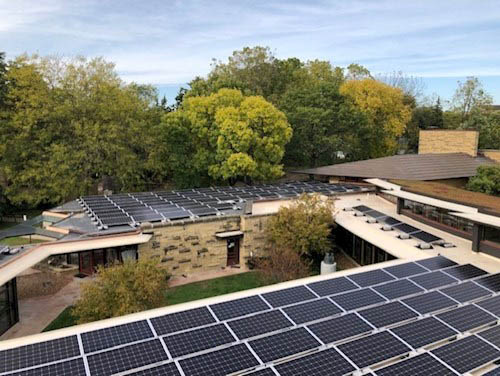
First Unitarian Society reduced their energy use by 25% via efficiency measures. They also installed a solar energy system, which reduced their their carbon footprint by another 25%. Learn more in our Success Stories.
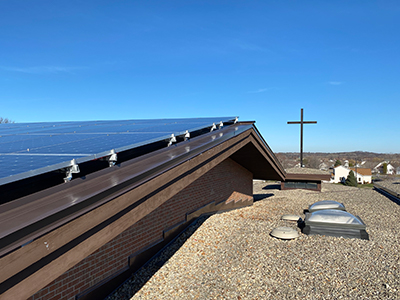
St. John’s Lutheran in Oregon recently installed solar that reduced its energy use 26%.
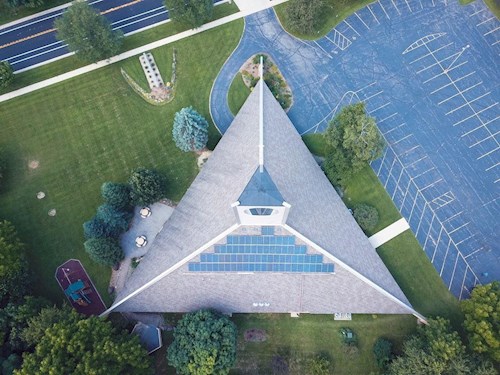
Memorial United Church of Christ installed solar and inspired several members to install solar as well.
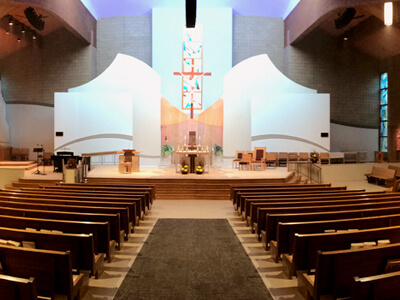
St Dennis installed solar and then challenged members to do a household carbon footprint.
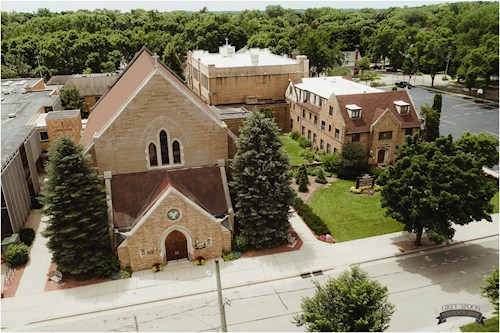
Blessed Sacrament recently completed efficiency upgrades for its heat plant and upgraded most of its lighting to LEDs.
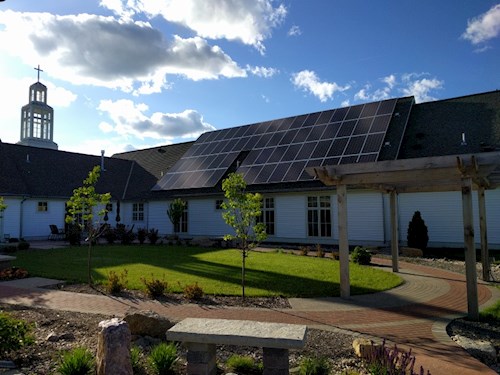
Middleton Community Church UCC installed solar in 2016. They also upgraded most lighting to LEDs. It has switched from single-use dishes to reusable ones, and invites members to keep their own mugs on shelves at church for fellowship times. In 2020 a bike rack was added at the church to encourage biking to church. Several members have been inspired to purchase hybrid or electric vehicles.
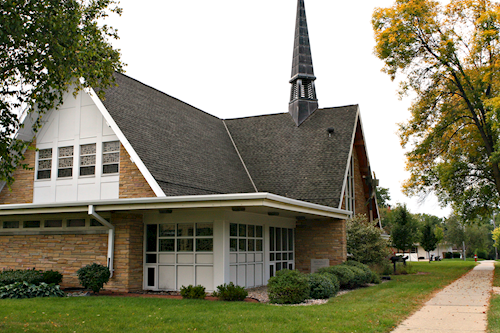
Midvale Community Lutheran Church has an Energy Task Force. Completed energy saving projects include: replacement of 1965 vintage wood casement windows in the Education Wing, replacement of all incandescent, fluorescent, and metal halide lamps with LED lamps. To keep costs down they used volunteer labor and completed the project for under $6,000. These efforts reduced our electrical consumption by 14,000 kWh and our electrical demand by over 29 kW, resulting in an annual 14% savings in electric cost.
Let us know if you've got a success story from your faith community to add to this list!
Faith communities can take climate action in a variety of ways:
Faith communities have the ability to inspire deep change across your community. Making sustainabilty the 'new normal' means that everyone shares a commitment to environmental stewardship.
Are you ready to inspire businesses and residents to adopt sustainable practices in their own lives? Are you already thinking about how key institutions such as local houses of worship or beloved landmarks can take action that inspires others? Much research exists on what works--and doesn't work--to influence practices. Here are some important considerations as you think about inspiring change:
Collaborating with other like-minded faith communities is powerful. You can learn from what others are doing, challenge your community to achieve similar goals, or team up with other faith communities on bigger initiatives.
The Dane County Office of Energy & Climate Change convenes a group of faith leaders interested in climate action and stewardship quarterly. The aim is to promote idea sharing and collaboration, both among the leaders and with our office. If you would like to learn more or join the discussion, let us know.
A variety of state, national and global initiatives are available for your faith community can connect to others. To learn more about specific faith-based climate initiatives check out the following coalitions and resources: